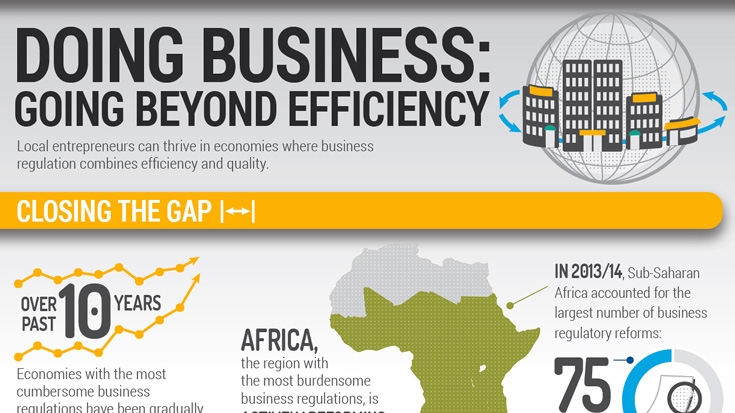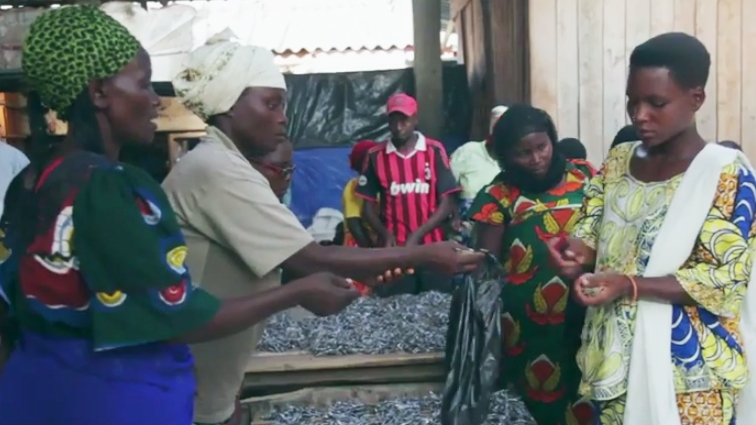Singapore tops the list of business-friendly economies globally, while five of the top 10 most improved countries are in sub-Saharan Africa, according to the World Bank Group’s Doing Business 2015 rankings.
The 12th annual report finds that the 10 economies with the most business-friendly regulatory environments are Singapore; New Zealand; Hong Kong SAR, China; Denmark; the Republic of Korea; Norway; the United States; the United Kingdom; Finland; and Australia.
The 10 economies that have improved the most since the previous year are Tajikistan, Benin, Togo, Côte d’Ivoire, Senegal, Trinidad and Tobago, the Democratic Republic of Congo, Azerbaijan, Ireland, and the United Arab Emirates.
Sub-Saharan African countries had the highest number of regulatory reforms — 75 of 230 around the world — while emerging Europe and Central Asia had the highest percentage of improving countries. Progress was uneven in the Middle East and North Africa, with conflict-affected Syria near the bottom. South Asia saw the lowest number of reforms.
While 80% of countries in the study improved their business regulations last year, only about one-third moved up in the rankings. However, the gap between the best- and worst-performing countries continues to narrow as countries improve their business climates, said Rita Ramalho, manager of the Doing Business Project.
“It’s easier to do business this year than it was last year, than it was two years ago or 10 years ago,” she said. “We see that the economies that score the lowest are reforming more intensely, so they are converging toward the economies that do the best.”
For example, in 2005 it took an average of 235 days to transfer property in the lowest-ranked countries and 42 days in the top-ranked countries — a difference of 193 days. The gap now has narrowed to 62 days (around 90 days for the lowest-ranked and less than 40 for the top-ranked).
The report measures the ease of doing business in 189 economies based on 11 business-related regulations, including business start-up, getting credit, getting electricity, and trading across borders. The report does not cover the full breadth of business concerns, such as security, macroeconomic stability, or corruption.
This year’s report, “Doing Business 2015: Going Beyond Efficiency,” uses new data and methodology in three areas: resolving insolvency, protecting minority investors, and getting credit.


